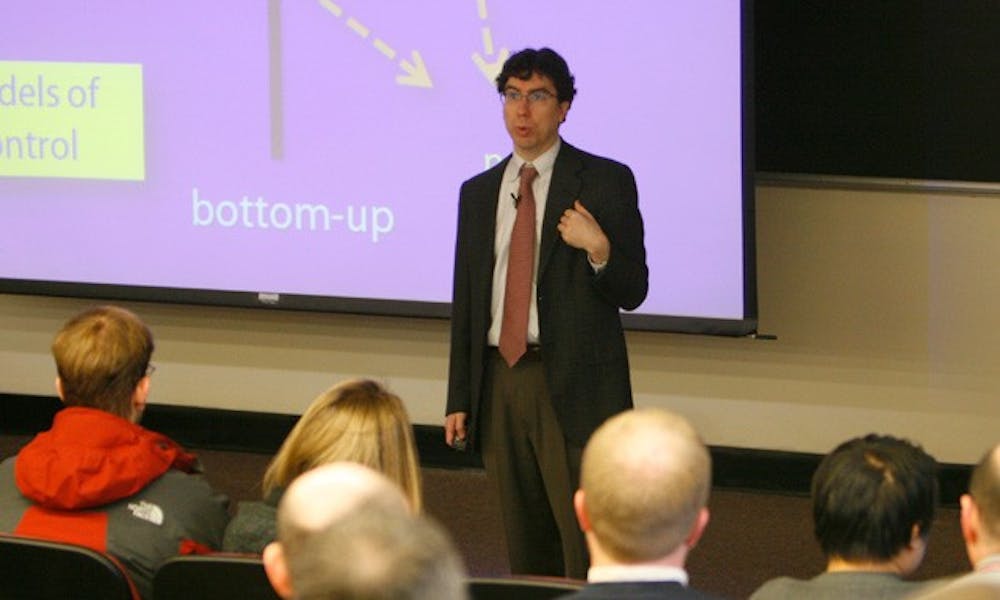Although most students would agree that they can freely express their ideas online, the freedoms of the Internet may not be as guaranteed as some would presume.
In the fourth installment of the Provost’s Lecture Series, Jonathan Zittrain, professor of law at Harvard University, explained that despite the attempts of governments and other organizations to manipulate and suppress online content, there are solutions to preserve this information for future generations.
“This is a threat that everybody... thinks of as important but no one thinks of as urgent,” said Zittrain, a co-founder of the Berkman Center for Internet and Society at Harvard.
Speaking to a crowded room of more than 100, mostly adults, Zittrain cited the power of the American government to influence the content distributed to the public. Whereas this was previously manifested by controlling booksellers, the United States government can now pressure Internet Service Providers to remove or censor content that government deems dangerous to national security, he said.
By only storing online content on major servers such as Google or Microsoft, information is ultimately unprotected and can be removed at any time by the whim of governments, Zittrain contended.
To solve this classical “Fort Knox” problem and maintain unaltered information for future generations, Zittrain said that backing up content on multiple servers will save material if they are removed from one server. He also believes that Web sites should also back up information stored on other linked sites and keep them on their own servers.
Given the increasing frequency of cyber-attacks and decreasing cost of server space, Zittrain sees a future where Web site owners act in their own self-interest and back up other Web sites in hope that they, themselves, will be cached in return.
Zittrain noted that sensitive information could be encrypted and stored by third party organizations such as libraries until a date when the content is no longer deemed dangerous. This would be especially helpful in situations of national security, he added.
He also commended the efforts of Web sites like The Wayback Machine and Wikipedia for their efforts to preserve information for future generations. Zittrain said that The Wayback Machine, an Internet archive time capsule that stores any changes to Web sites, has “copied everything... down to the day [and continues to] keep it safe.”
Senior Emily Poplawski, who attended the lecture, felt that although the talk was interesting, it was not ultimately applicable for many students.
“Most people at Duke are looking for the latest content, like checking Facebook statuses... or ESPN scores,” she said, adding that they tend not to search for historical archives.
Although discussing a serious subject, Zittrain still found time to jest with his audience, at one point commenting on how the capital of Kansas was recently renamed “Google” for the month of March in an attempt to draw more business from the company.
Despite problems with the current Internet landscape, Zittrain offers hope for the coming years.
“[The future of the Internet] is in our hands more than we think, and so long as a critical mass of us is ready to take on this problem... we can make progress on it,” he said.
Get The Chronicle straight to your inbox
Sign up for our weekly newsletter. Cancel at any time.

